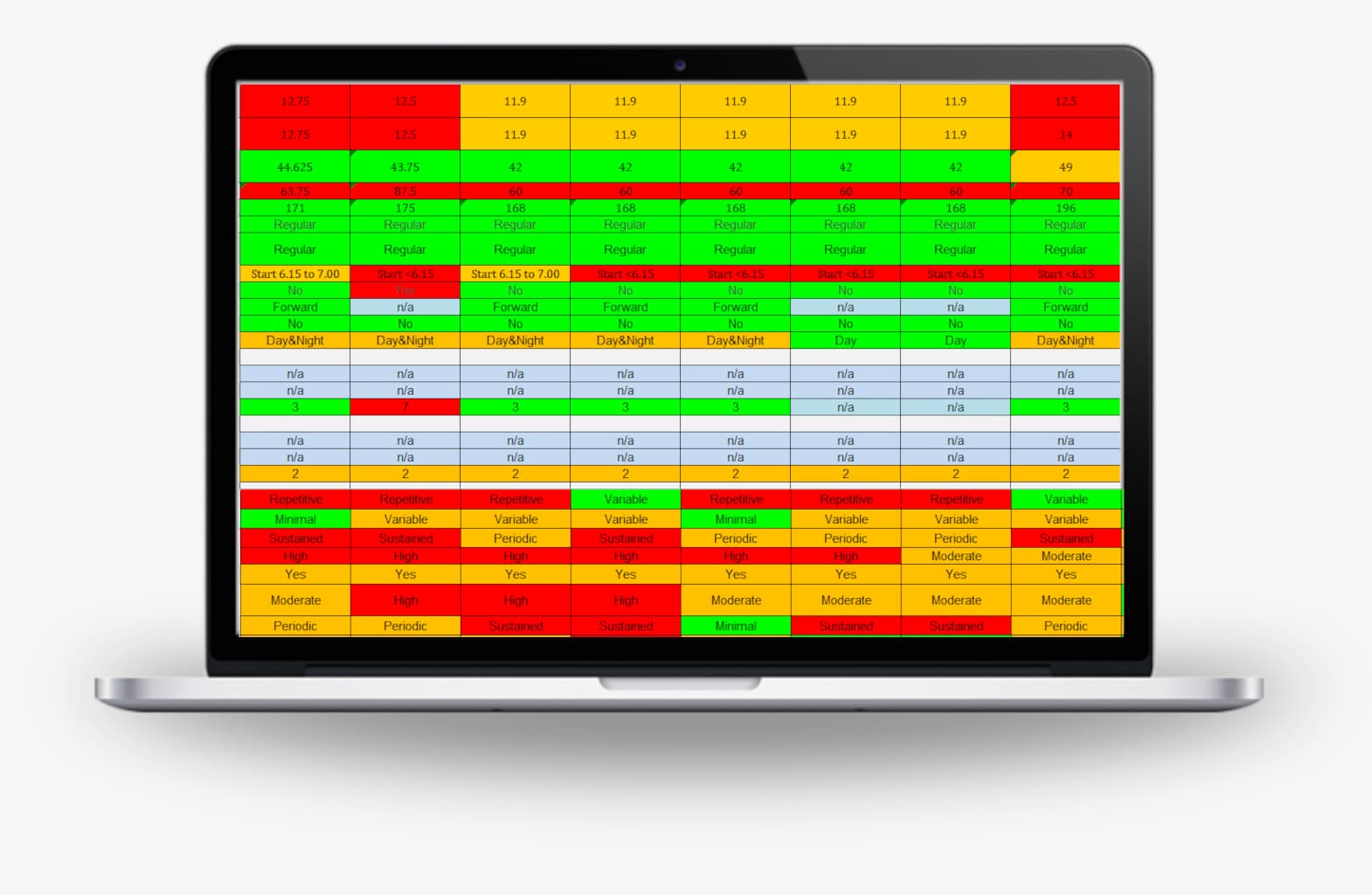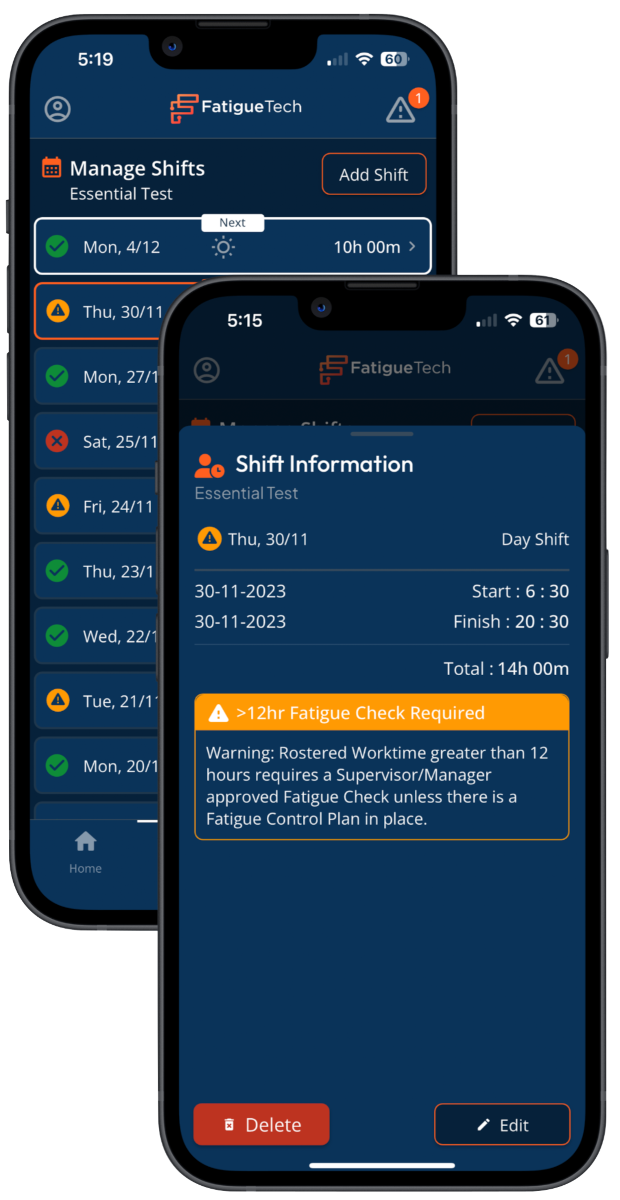Fatigue Risk Assessment
Fatigue is a recognised hazard in a variety of workplaces, particularly those that require their workforce to work extended hours or shift work. Where there is an identified fatigue risk there is a legislative obligation to assess and to control risks to as low as reasonably practicable. Our fatigue risk assessment will provide your organisation with four distinct phases that will provide a detailed and systematic approach in the reduction to fatigue risk.
We conduct Fatigue Risk Assessments in the following industries:
- Utilities
- Transport and Logistics
- Construction
- Mining
- Agriculture
- Rail
- ...and more
Desktop Audit
Desk top audit of current (and proposed) shift systems and operational procedures to ensure compliance with legislative requirements, codes of practice and/or guidelines in relation to risk minimization
Inform & Educate
Introductory presentation to engage fatigue review team (management representative/s, WHS committee representatives)
Risk Assessment Workshop
Facilitation of fatigue review workshop (including representatives of the effected work group)
Report
Present a final report of the fatigue risk assessment & recommendations to management.
- Maximum work hour caps
- Scheduled breaks
- Work hour monitoring and alerts
- Smoking
- Nutrition
- Alcohol
- Physical Activity
- Stress (Mental health)
- Health surveillance
- Obesity
- Sleep
- Home & social commitments
- Task rotation
- Self-pacing of work
- Task sharing
- Controlled work environments (e.g temp, respite areas)
- Traffic division
- Comprehensive fatigue training
- Point-in-time fatigue self assessments (Check)
- Warning alarms
- Lane departure
- Proximity sensors
- Infra-red camera
- Car pooling
- Supervision or Buddying observations
- Supervisor training
Risk Assessment Approach
Our Fatigue Risk Assessment utilises a comprehensive risk-based approach which complies with legislative responsibilities to provide for controlling risks associated with fatigue. It is a systematic, multilayer approach to reviewing work and non-work related fatigue hazards, analysis of risk, identification of current mitigation strategies, development of recommendations for additional controls and the development of a risk treatment plan. This risk treatment plan is then used to guide the review of operational policy and procedures.
Make sure your Fatigue Risk Management System is comprehensive
SPECIFY
IMPLEMENT
MONITOR
VERIFY
Fatigue Management
Risk Assessment Platform
To ensure fatigue risk management processes are specified, implemented, monitored and verified against know guidance material Ethos Health has developed a Fatigue Risk Assessment platform that organisations can subscribe to so they can conduct their own comprehensive risk assessments which can be subsequently reviewed by one of our subject experts.


